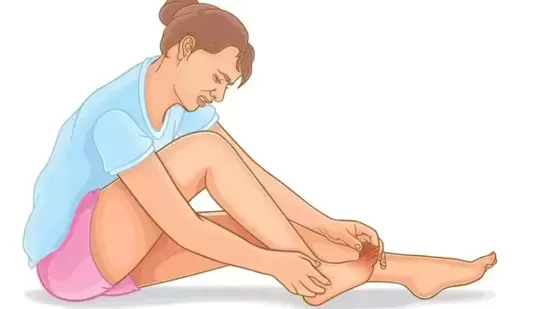Pain feels more intense when it surprises you: Study reveals why stubbing your toe, paper cuts hurt more
A new study indicates that pain perception is influenced by expectations and certainty. Researchers conducted a virtual reality experiment to find results.
Stubbing your toe or getting a paper cut suddenly can leave you wincing in pain. These surprise injuries often hurt a lot. Do you know why? According to a new study, a scientific reason might be behind it.

Also Read | Could smoking in sunshine actually add to your lifespan? Doctor explains
Researchers at the University of Tsukuba in Japan published a paper in Cognition that found that pain perception can be affected by factors such as beliefs about pain and its uncertainty. It means that when taken by surprise, your brain may amplify the pain caused by an injury.
Expectations affects pain
The study researched a phenomenon called Bayesian Surprise, which refers to how our brains process pain differently when reality doesn’t match our expectations - it is related to how the same injury may hurt us differently at different times or how pain varies from person to person.

The study
The study found that pain perception depends on our expectations and how certain we are about what’s coming. They conducted two virtual reality experiments with 23 participants and used heat stimulation.
In the first experiment, participants had to control a virtual knife with their left hand and stab it into their virtual right forearm while a device applied heat to their actual arm at different timings—either simultaneously with the virtual knife or delayed by about a second. The knife remained visible during the test or vanished right before contact.
In the second experiment, 26 participants observed the knife movement without controlling it themselves, allowing researchers to examine how the sense of control influences pain perception.
The findings
The researchers found that pain intensity was significantly higher when heat stimulation was delayed than when it was simultaneous with knife contact. This effect was stronger when the knife vanished suddenly. These effects only appeared in the group who controlled the knife themselves, not those who merely observed it.
The findings suggest pain perception operates on principles different from other sensory experiences. Pain seems to be experienced primarily due to prediction errors or surprises.
Note to readers: This article is for informational purposes only and not a substitute for professional medical advice. Always seek the advice of your doctor with any questions about a medical condition.
Catch your daily dose of Fashion, Taylor Swift, Health, Festivals, Travel, Relationship, Recipe and all the other Latest Lifestyle News on Hindustan Times Website and APPs.
Catch your daily dose of Fashion, Taylor Swift, Health, Festivals, Travel, Relationship, Recipe and all the other Latest Lifestyle News on Hindustan Times Website and APPs.






